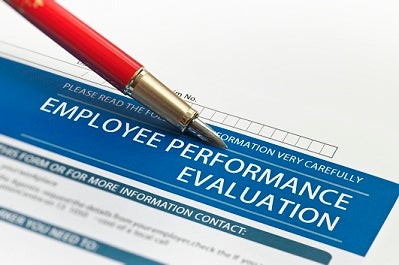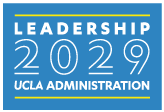Management Topic: Reviewing Performance and Completing Performance Evaluations
In January’s monthly management tips, we shared the importance of regular check ins with team members, support in achieving goals and meeting expectations, and holding staff accountable when this does not occur. Campus Human Resources recently sent a campus reminder that 2021’s performance evaluation season has begun and it is time to put in writing what you have been communicating to your team members this past year. We hope the following tips and recommendations will help you through this process.
Completing the Evaluation:

- The feedback provided within the performance evaluation should not come as a surprise to an employee if management has been having regular communication and engaging in the performance management cycle.
- Remember that performance evaluations can serve as important supporting documentation for future employment actions, merits, or progressive discipline. Therefore, these documents should be accurate portrayals of the employee’s performance throughout the year.
- Employees should be asked to complete a self-appraisal form. This form allows an employee the opportunity to summarize their contributions and is a helpful reminder to supervisors of the hard work and accomplishments an employee has had that they may have forgotten over the year.
- The evaluation should also provide feedback on how well an employee is fulfilling the job functions outlined within their job description. This reiterates the importance of having up-to-date job descriptions.
- Make sure to note completed goals from last year’s performance evaluation, as well as any that were not completed and why.
- Feedback should be individualized and relevant to an individual’s job and professional development goals.
- Remember that 2020-2021 has been challenging and unprecedented, causing rapid changes in priorities and even jobs for some employees. Approach evaluations with more flexibility, empathy and compassion and acknowledge the challenges that occurred in this year of anxiety and uncertainty. Consider your employee’s ability to adapt and their resilience during this time, especially if they had additional duties and projects added to their workloads. How did your managers support their staff and adapt to changes as well?
- Create goals for the next performance review cycle that are job-related, attainable and SMART. Goals should also align with the university and department’s mission and goals.
Issuing the Evaluation and Follow Up:
- If an employee receives a rating below “Meets Expectations,” what commitments to help will you be making? Consider reaching out to your Employee Relations Consultant.
- When issuing the evaluation, remember to set the right tone and be in an appropriate environment such as a private office. If discussing the evaluation virtually, make sure to have both parties on camera to ensure clear communication.
- Provide specific, recent examples when explaining any areas with deficiencies and do not withhold difficult feedback. Doing so is a disservice to both you and your employee.
- Remember key HR principles, including not discussing the specifics of an employee’s absence from work or holding an employee’s entitled or approved leave against them.
- Gartner’s Painless Performance Conversations Workbook includes helpful resources to assist you in issuing your performance evaluations and holding related performance conversations.
- For more in-depth information on this process, please review this year’s performance evaluation guide.
Recommendations for the Next Performance Evaluation Cycle
It’s hard to recall everything an employee has done during the course of the year and this makes it more likely management will fall trap to recency bias. To avoid this, management should keep notes throughout the year or from their one on one meetings with staff to help them recall what has occurred. Management should also continue to be mindful of adhering to the performance management cycle.
Scenario for Discussion:
You need to issue a performance evaluation to a team member who has received progressive discipline during the performance review period. The performance issues impacted individual ratings in multiple categories and has impacted their overall score. Unfortunately, you have not seen improvement in their performance since their last disciplinary letter was issued. You anticipate your employee having a poor reaction to their performance evaluation.
- How would you prepare to issue this evaluation?
- What can you do or say in the performance evaluation review meeting to minimize a negative reaction?
- If your employee does react negatively, what would you do?
Recommendations for how to address February’s Scenario can be found here.
Stay Safe!

Do you have feedback, questions or a suggested topic you would like to learn more about? Please email: managementtips@ucla.edu.
Want to receive Monthly Management Tips emails? Sign up for our list!

